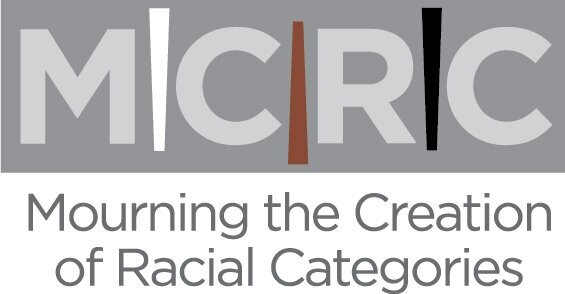The MCRC Project: Poetry
That Time I Talked to Race
In “That Time I Talked to Race” – the poet, Kirsten Hurst, talks to a character named “race” who “ate her family,” tree wiping out ancestors who appear to be different races than does she. The poet tells us that, as a white-classified person, people really don’t see her non-white ancestors imprinted on her face or skin. The poem centers on the loss and separation that is part of the journey toward the creation of her.
That Time I Talked to Race
It’s hard to bury something that never really died.
I find him hiding in my cupboard
between the spaghetti sauce and sauerkraut
after he’s eaten my family tree.
“You know me,” he says,
perching himself on a wine glass.
“I come from twisted arm and self-tied noose,
the promised land of submission
wrapped in nuclear foil.
When America was a newly formed grape,
I built muscle carrying broken-bone ancestors
into separate rooms
where they didn’t age well.
“I’ve tasted secret grandfathers from Japan,
great Cherokee aunts forced to wait on the porches
of homogenous households.
“I am the strained smile at the grocery store,
the one-winged butterfly in a dark-skinned stomach.
I even fill the space between mixed race classmates-
the elephant inside the whiteboard
-but no one thinks to look for me there.
“Instead, they take blood samples,
cranial measurements, X-rays-
grab body parts from the boxes
I lured their fathers into and call them
history.”
He looks like me, I realize as the story ends but doesn’t.
And it’s only two months later,
when he has woven himself into the living room rug,
that I wonder how many other houses he’s staying in.
- Kirsten Hurst

